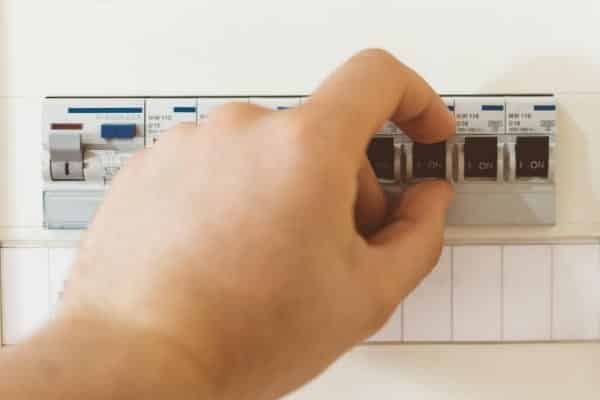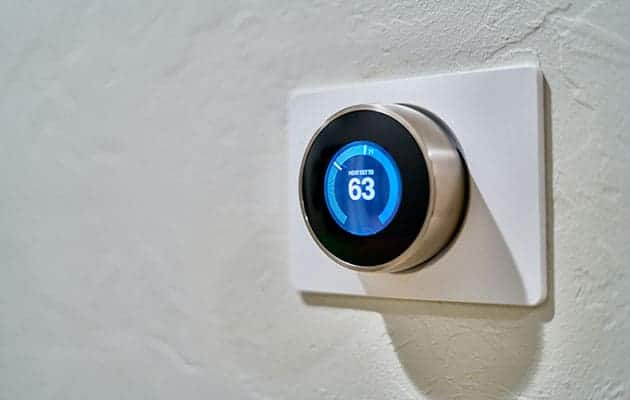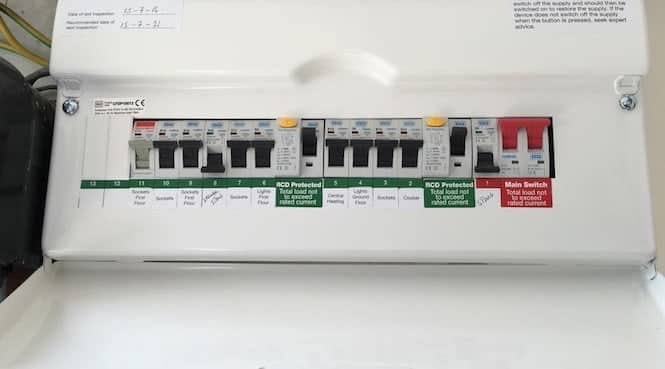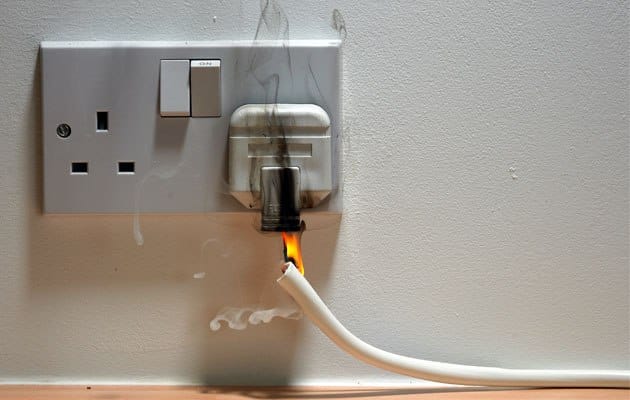Find My Local Expert Top 7 Causes of Electrical Fires...
Read More
When is the Best Time to Replace a Fuse Board?
Fuse boards are not the kind of thing that commonly gets thought of by your average homeowner when talking about upgrading and replacing things. Most homeowners are aware of the fuses/breakers themselves and how they sometimes need replacing, but the fuse board that houses them is rarely considered something that needs replacing.
For modern fuse boards, it is true that it is rarely necessary to change the fuse board itself—certainly not due to any long term deterioration of the board as a result of time passing. Far more often it will be the case that the fuse board needs changing as a result of an upgrade or renovation that requires a larger board.
In some cases, it will be necessary to replace a fuse board because the existing one is old enough that it no longer meets safety regulations. And, of course, if a fuse board is somehow damaged, it will almost certainly need replacing. But, if none of these situations apply, there is unlikely to be a compelling reason to change your fuse box.
What is a Fuse Board?
Also known as a fuse box or an electricity board, a fuse board is a safeguarding mechanism for any property—commercial or residential—that behaves as a kind of gatekeeper for any electricity entering the property.
It contains a series of RCDs (residual current devices) that correspond to different parts of the building’s electrical system. As an example, you might have a dedicated RCD for your lights, another for your downstairs power outlets, one for your electric oven, and so on.
The purpose of the RCD is to cut the power the instant that there an excessive draw of power, indicating that a fault has occurred. This prevents people from being harmed.

Why Should I Replace my Fuse Box?
The three main reasons for replacing your fuse board are upgrading your electrical system, replacing an outdated fuse board, such as one with a metal case, or because the existing fuse board was damaged.
The primary reason you would want to upgrade—assuming your fuse board is not very outdated—is if you needed more capacity. This often happens when you add extensions to the home, or perhaps a new high-power electrical appliance, like an electric shower.
How Long Does the Job Take?
There are, of course, many factors that can affect the length of time it takes to change a fuse box, not least of which is the skill and experience level of the person doing the changing. The condition of the fuse board is also important; a professionally installed fuse box that is in good condition will be much easier to replace than one that was done unprofessionally or has been damaged.
As a general guide, replacing a fuse board can take between two and five hours.
Can I do it on my Own?
Electrical work of this nature is what is called “notifiable”, meaning that you are not allowed to carry it out on your own without having the work properly certified. This does not mean that you cannot carry out the work, but that work will need certifying by a qualified electrician in order to be legal.
There are certain electrical tasks you can carry out yourself, such as changing a light switch or electrical outlet, but this is considerably more dangerous than those tasks, hence the more restrictive laws around it.
Finding a certified electrician who will sign off on your work can be tricky since the consequences of improper work will fall on them if they miss a mistake you have made. For this reason, it is best to find an electrician who will sign off on your work before you start, so you don’t end up having to pay someone to do work you have already done.
Generally speaking, however, we strongly feel the best course of action is to hire a professional to take care of the whole job. The financial benefits of doing it yourself versus the potential risks if something is done wrong don’t make for positive reading.
How Much Will it Cost?
Again, the scope of the job will affect how much the final price is, but you can expect a professional, fully tested, and properly certified replacement fuse board to come to around £500.
While we would never tell you to spend more money than you need to, it is worth noting that anything less than £400 would be a very uncommon price, and perhaps worth investigating further. This is not the kind of work that you should allow to be done improperly, as it could result in significant inconvenience, if not serious injury if something goes wrong.
Is There Any Additional Work Needed?
There would not inherently be any additional work needed to carry out a fuse board replacement other than the replacement job itself if there are no other issues to deal with. If the wiring going to or from the fuse board is not up to the necessary standard, it would obviously need to be replaced, which would create additional work as part of the job.
There can also be additional work of a non-electrical nature. For example, it is a legal requirement that the fuse board be securely mounted. If the wall where the fuse board is currently situated is deteriorating or not up to the necessary standard, it may be necessary to fix the wall or move the fuse board to a new location.
Commonly Asked Questions
There are often a lot of additional questions that come with a topic like this. With that in mind, we’ve done our best to round up some of the things we haven’t already answered in detail so far.
What are the Risks of a Faulty or Improperly Installed Fuse Board?
If your fuse box is damaged or poorly installed, there is a chance that the worst you will suffer is power outages in parts of your property, and RCDs triggering when there is nothing wrong with your electrics. However, there is also a chance that something more serious could happen, such as an electrical fire, or electrocution. If you have reason to believe your fuse board needs changing, don’t wait.
The answer is: by lousy handling of the wiring in its laying, which can cause cracks or mechanical wear of the insulating jacket which, as time goes by, yields to the heat of the cable, leaving it exposed to current leakage which, on finding the slightest path of circulation to earth, produces the fault with the consequent losses, some of which can be very regrettable.
Are Fuse Boards Complicated?
The fuse board itself is not overly complicated; it is essentially a housing for the more complicated components, such as the RCDs. Given the function of the fuse board, they are made to very strict standards, and you should not attempt to replace or repair internal components. If the fuse board itself is faulty, either call a professional to take a look, or have it replaced.
What is an RCD?
An RCD is a device that is sensitive to electrical current and can cut the flow of electricity going through it when needed. All electrical systems have a capacity, from the appliances you use to the wires that feed them power. If that capacity is exceeded, things can break down, blow up, and even start fires. An electrical wire that is overloaded, for example, will generate heat, melting insulation, and potentially igniting the flammable substances around it.
Because we can dictate how much power should be getting to a particular part of the electrical system at any given time, we can use an RCD to protect against that circuit being overloaded. This is possible because the amount of electricity being used by a particular circuit is determined by the appliances using it.
Let’s take the example of an electric shower. An average electric shower should be rated for up to 40 amps and should be isolated on its own circuit. Knowing this, we can put the electric shower on a separate circuit with a 40 amp RCD. Now, if something goes wrong—something shorting inside the shower, for instance—the amount of current being drawn into that circuit will exceed 40 amps, and the RCD will trip off, cutting the power.
With something like electrical outlets, it is trickier since we can’t know exactly what will be plugged into the outlets in the fullness of time. However, we can know what the maximum rated capacity of the wires going to those outlets is. If the current exceeds that capacity, the wires are going to start to get hot. An appropriate RCD will cut the power before this happens.
Are RCDs and Breakers the Same?
Breakers are often confused with RCDs, but there is a difference. RCDs are designed to protect people, whereas breakers (sometimes called fuses) are designed to protect circuits. You will typically only find one or two RCDs in your fuse board, but there will be lots of breakers.
In simplified terms, a breaker is triggered when there is a high current (higher than the rating of the breaker) indicating that too much power is flowing through this part of the system. RCDs, meanwhile, check for a subtle imbalance between the live and neutral wires, indicating that electricity is flowing where it shouldn’t (such as a person), and cutting the power before it can harm anyone.
You May Also Like...
Is Your Heater Energy-Efficient?
Find My Local Expert Is your Heater Energy-Efficient? Most people...
Read MoreHow to Replace a Pull Cord Switch
Find My Local Expert How to Replace a Pull Cord...
Read MoreFuse Box Replacement and Repair
Find My Local Expert How to Make Sure You Have...
Read MoreElectrical Fault Finding
Find My Local Expert Understanding Electrical Fault Finding An electrical...
Read MoreNeed A Fuse Board Replaced?
My Trusted Expert Guarantee
Experts Have Been Vetted & Approved




